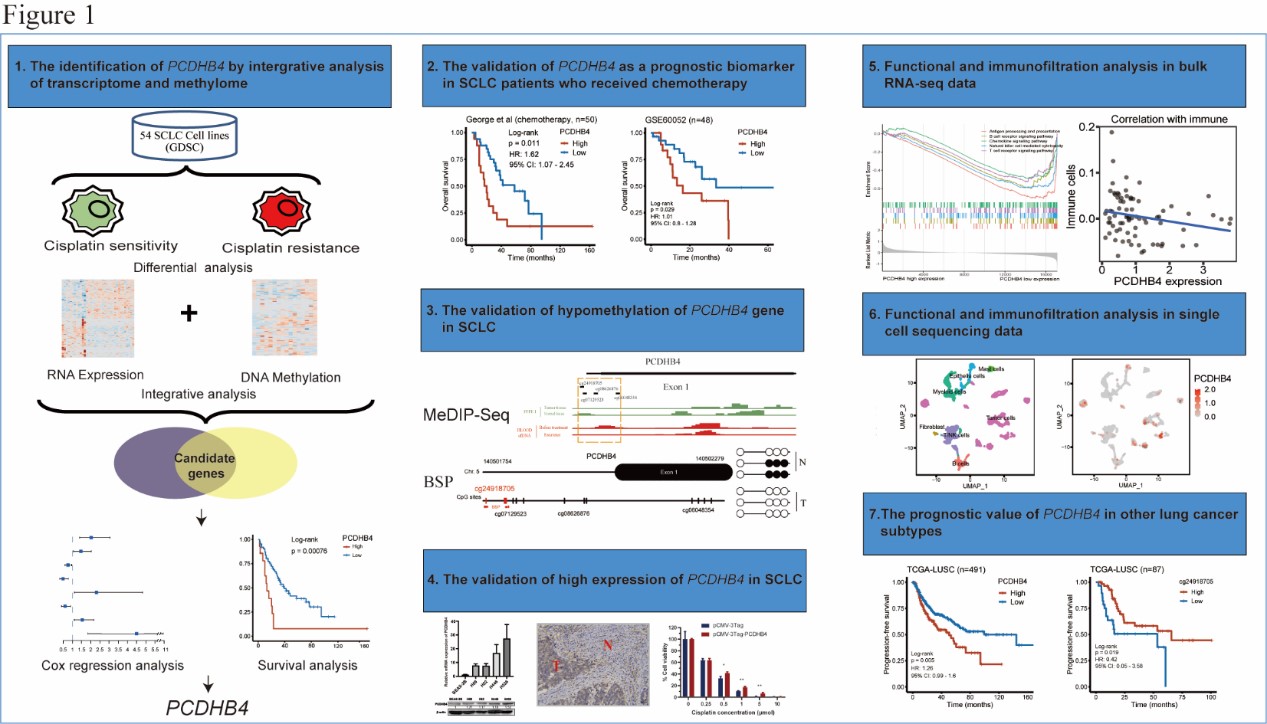
Small cell lung cancer (SCLC) is a fast-growing and highly malignant subtype of lung cancer. One of the biggest challenges doctors face is the cancer’s resistance to platinum-based chemotherapy, the standard treatment for SCLC patients.
Recently, a research group led by Prof. HONG Bo from the Hefei Institutes of Physical Science of the Chinese Academy of Sciences, identified a novel prognostic biomarker that could help predict chemotherapy resistance in SCLC by multi-omics integrative analysis.
This finding, published in iScience, could improve treatments for this aggressive form of cancer.
In this study, researchers conducted an integrative analysis of transcriptome and methylome data, revealing a strong correlation between high expression of PCDHB4 gene and poor survival in chemotherapy-treated SCLC patients.
Further investigations using clinical samples and cell lines confirmed that the PCDHB4 gene exhibited lower levels of methylation and was more active in SCLC, which contributed to the cancer’s resistance to chemotherapy.
Analysis of data from both bulk and single-cell RNA sequencing indicated that SCLC tumors with high PCDHB4 expression was associated with lower immune infiltration and higher scores of stemness and epithelial-mesenchymal transition (EMT).
This study highlighted PCDHB4 as a key biomarker that could help predict which patients are more likely to develop resistance to chemotherapy, according to the team.

The graphical abstract of the study (Image by ZHU Qizhi)

86-10-68597521 (day)
86-10-68597289 (night)

52 Sanlihe Rd., Xicheng District,
Beijing, China (100864)

